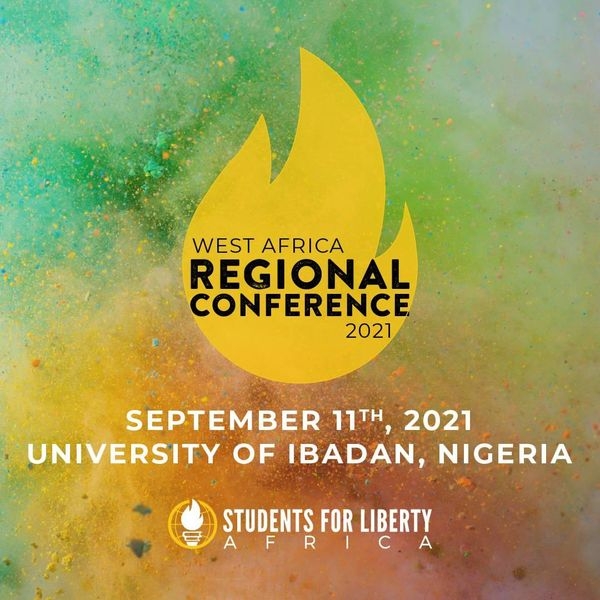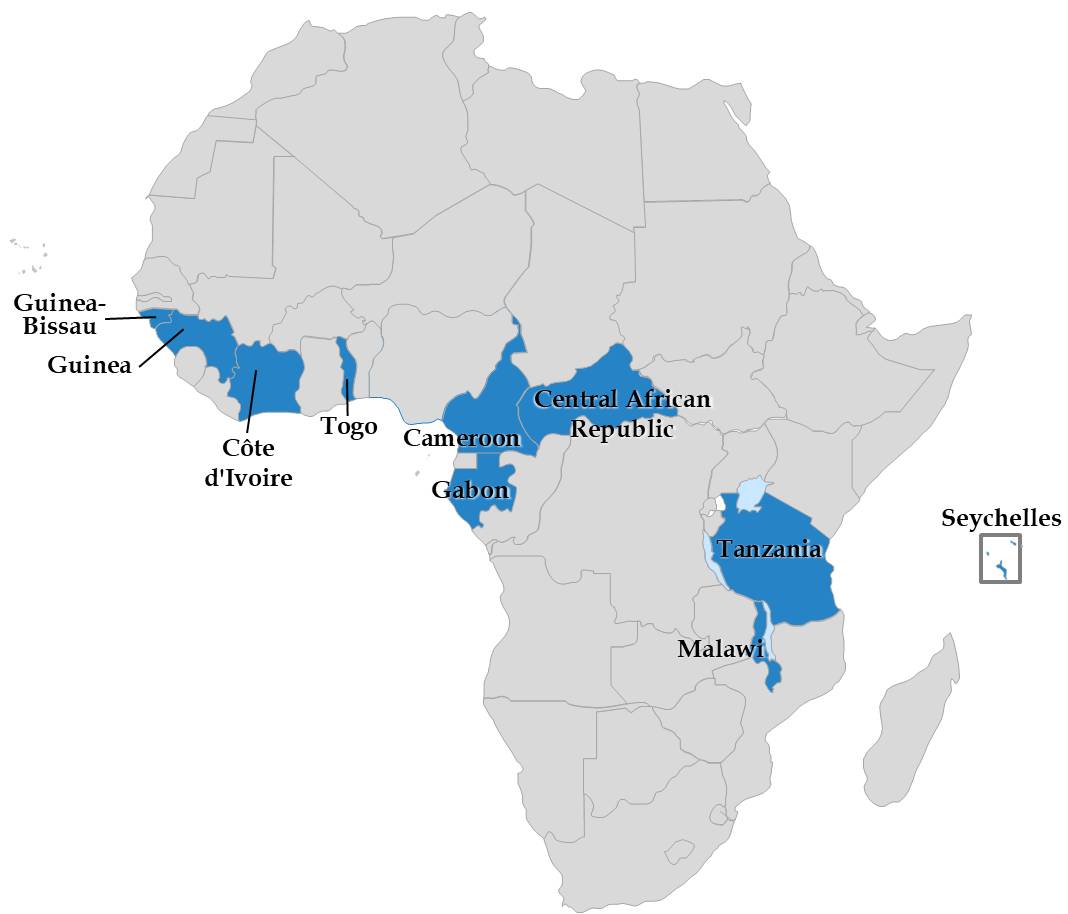Blog

Reformers Of Africa Participates In The West African Regional Conference, 2021
On Saturday, September 11, 2021, Civil Society Organizations, think tank groups, administrators and young Africans gathered at the Otunba Subomi Balogun Conference Centre of the University of Ibadan to discuss issues on human liberty and development in Africa. The Reformers of Initiative for Development in Africa (Reformers of Africa) was one of the conference’s participants. The West Africa Regional Conference was hosted by Students For Liberty, Africa- a libertarian organization that promotes the ideas of freedom and human liberty. The West African Regional Conference, WARC, a yearly conference, is credited as one of the largest gatherings of libertarians in Africa. This year’s WARC delivered as it promised. The conference explored critical issues and topics in Africa and mainly in Nigeria, Africa’s most populous nation and largest democracy. The issues and topics raised at WARC 2021 were media gag in Africa (Nigeria), police brutality and human rights abuses in Africa (Nigeria), civic engagement in Africa (Nigeria), excessive borrowings and debt management in governance, women and human rights in Africa, accountability in governance and Africa Free Continental Trade Agreement, AFCTA.
The media, popularly referred to as the fourth arm of government and the people’s voice to the government, is under attack from several governments in Africa. This attack is systemic and targeted against media that do not promote government agenda irrespective of the nature of the agenda. At WARC 2021, panellists of the first-panel session discussed media gag in Africa (Nigeria) to determine if it is a dictatorship guise in Africa’s fledgling democracy. The gag against media in recent times have included the ban of social media and the complete shutdown of the internet in some countries in Africa. The panellists agreed that the continuous clampdown on media by many African governments is a statement against the people’s basic human rights to be informed, to be heard and to participate in their government. It is a guise for dictatorship in democracy.
Police and policing in Africa and around the world have come under serious scrutiny within the last few years. In 2020, these abuses reached a climax when young people in Nigeria protested the several cases of abuse committed by an arm of the Nigerian Police known as the Special Anti-Robbery Squad, SARS. The menace of SARS which include unlawful arrest and torture, extortion, harassment and extrajudicial killings in several instances reached a brim. Although the protest was targeted at overhauling the policing in Nigeria, it quickly exploded and the quest to quell the protests threw the nation into a quagmire. The aftermath of the protest still hurt and haunt many youths in Nigeria. As explained by the speaker, Olumayowa Okediran, the police have ceased to be the friend of Nigerians. The reality in Nigeria reflects in almost all the countries of Africa. The speaker called for a total overhaul of the police and policing in Nigeria and in Africa at large.
While police brutality is widespread in Africa, the events of October 20, 2020, at Lekki Tollgate in Lagos, Nigeria cannot be erased from the memory of many young people in Nigeria. At about 6:50 pm, members of the Nigerian Army opened fire on peaceful #ENDSARS protesters at Lekki Tollgate. Over 10 months since that fateful day, there are no answers to the events that took place in Lagos. The speaker, Taiwo Adebulu, explained that investigating the truth and telling the untold stories in Nigeria and Africa can be tasking. Just like no one is taking responsibility for the events at Lekki Tollgate, and in fact, more questions are asked each day in an attempt to tell the story of Lekki Tollgate; the truth has become a mirage in most part of African stories. If the truth will ever emanate in the present is uncertain. However, the certainties remain that there was a shooting by the Nigerian Army and peaceful protesters were on the ground at the time. Many young people still cannot wrap their heads in whatever story is being told after the incident but certainly, a lingering question is if the Lekki Tollgate story will ever be told truthfully. The speaker concluded that more revelations will surface after the administration leaves the government.
In May 2018, President Buhari signed the ‘Not Too Young to Run’ bill to allow more youth to participate in government. Since this period, there have been few changes in youth engagement and citizen participation in governance. The second-panel session discussed the essential things young people need to interact with the polity and get involved in decision-making and drive towards better governance. Abiola Adigun, one of the panellists, highlighted that active unionism must be encouraged from institutions of learning without any clampdown by management. This will help young people to prepare for governance beyond institutions of learning. Abideen Olasupo, another panellist submitted that young people must be willing to take governance as it will not come on a platter of gold. Olarenwaju Arilomo, agreed that youth must do more and participate in governance.
Excessive borrowing and debt servicing have clouded the finances of many African countries. Many African countries are indebted and there are no indications that the debts could be repaid anytime soon. Vahyala Kwaga, provided insights into the dangers of deficit spending and the effects of excessive borrowing for state governments in Nigeria. The activities of state governments especially excessive borrowings have contributed to the financial imbalances and economic hardship in the country. Vahyala concluded that the States governments should not borrow beyond their IGR to be financially stable.
Fifty-four countries have signed the widely published African Continental Free Trade Agreement and 37 ratified it. The agreement is designed to translate to wealth creation, growth, sustainable development in Africa and it created the African Continental Free Trade Area, AfCFTA. However, how can AfCFTA translate to wealth when intra-trading is bizarre in the continent? Linda Kavuka, exposed the ills of African countries especially on the closed borders that continue to affect the AfCFTA and would hinder African prosperity.
The fifth-panel session reinforced the protocol of recognizing and protecting the rights of everyone including women with respect to access to justice and political participation. The panellists submitted that there should be a culture that is devoid of segregation and an assurance that the advocacy of women is not an unhealthy one or a war against another gender in society.
The last speaker, Wale Ajetunmobi, discussed accountability in governance. He highlighted the tools that can promote accountability in governance and how political officers can live the truth the people want. He explained that the people, as well as the government, media, CSOs and every organization, must take part in accountability and governance. We remain committed at Reformers of Africa to always take you along this line. Follow our Citizens Watch and join us in the quest to keep elected political officers accountable for their promises. Like our social media accounts:
Facebook: https://www.facebook.com/ReformersAfrica
Twitter: https://twitter.com/ReformersAfrica?s=09
Instagram: https://instagram.com/reformersafrica
LinkedIn: https://www.linkedin.com/company/reformersafrica
Anticipate our podcast that will engage several issues including policies and politics in Africa and accountability in governance.
Latest posts

The New Authoritarian Playbook: When Elections Cement Power, Not Change

The Year The Baobabs Fell: Saying Goodbye To African Giants In 2025
Inside Cameroon’s Refinery: Desperation, Systemic Failure, And An Unprecedented Election

West Africa Civic Tech Conference 2025: Advancing Democracy Through Innovation

Reformers Of Africa Celebrates World Book And Copyright Day